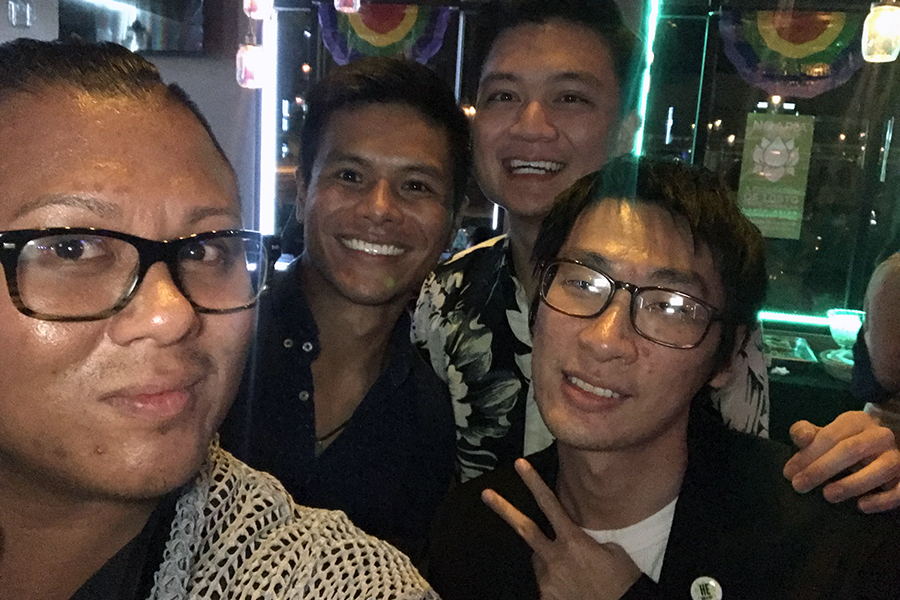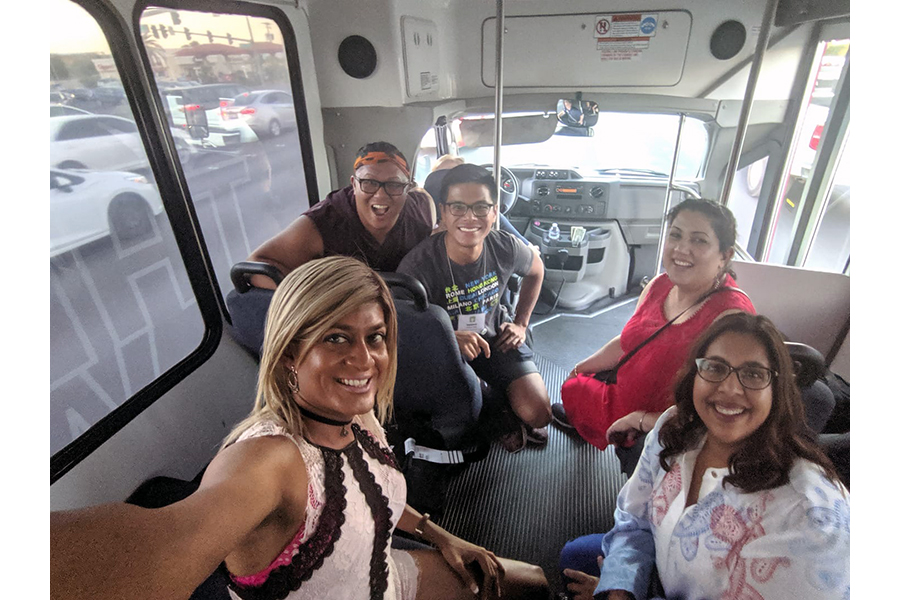A couple years ago, Matthew Wong attended a town hall at William Way LGBT Community Center for people of color. Of about 80 folks attending, Wong counted two other Asian people in the audience.
Having moved to Philadelphia post-graduation from the University of Notre Dame in Indiana, Wong wanted to create a space for other queer Asian folks leading cross-cultural lives similar to his own. East Asian by ethnicity, Wong grew up in Ohio with his mom, who hails from the Philippines, and his father, of Malaysia.
“The [Asian Pacific Islander] queer community, and just API in general, feels somewhat erased, especially when you talk about POC as a collective,” said Wong, a 26-year-old gay man. “POC tends to be incredibly focused on the Black and Latinx community, whereas Asians tend to be fighting this line of being POC or just generally accepted within white culture. We don’t necessarily know where we fall.”
Wong founded Philadelphia Asian & Queer, a volunteer-run social organization that aims to create a sense of community among LGBTQIA-plus Asian Pacific Islander people in the City of Brotherly Love. On Sept. 22, the group will overhaul Wong’s initial town hall experience by hosting its own such event at William Way to engage with local queer Asian folks. Attendees will discuss current issues in Philadelphia and participants’ concerns will inform PAQ’s future programming.
Since the organization’s inception, Wong said it has become more inclusive by focusing on welcoming API trans and gender nonconforming people. The town hall will serve as “a call to action,” he added, providing the group with “a chance to really bring all the diverse voices that we want represented within the API community.”
PAQ has a general membership of about 80 people, with about 20 routinely active members. Many participants are of Filipino, Indonesian, Vietnamese or East Asian backgrounds.
According to an April 2019 report by The Pew Charitable Trusts, 8 percent of Philadelphia’s residents are Asian. A June 2018 publication by the same organization indicates that, as of 2016, the largest populations of foreign-born residents in the city hail from China and Vietnam.
“A lot of API individuals come in [to PAQ] with that somewhat shared story of traditional culture, traditional parents and not necessarily knowing who to talk to or having a community that they believe they can fall back to,” Wong said. “That’s what our organization hopes to provide.”

Philadelphia Asian & Queer group outings. Photo: Courtesy Matthew Wong.
PAQ members participate in monthly brunch socials at API-owned businesses across the city as an ode to “the importance that food has on our traditional upbringing, but also in our current development as LGBTQ API folks,” Wong said. The next event takes place Sept. 29 at Filipino restaurant LALO in Center City. PAQ participants also unpack the LGBTQ Asian experience at a monthly support group hosted at William Way.
On Sept. 27, the social organization is trying out a new kind of programming by holding Lotus Lounge Night, an API drag and dance night, on Sept. 27 at the Center City gay bar Boxers PHL. Proceeds will benefit the Asian Mosaic Fund Giving Circle, which is committed to advancing the wellbeing of Philadelphia’s Asian community.
Noel Ramirez, who identifies as queer, is a PAQ board member who has been involved with the organization for two years. He came into the role with a decade-long track record of being active in the east coast’s gay API organizing scene.
Ramirez, who is Filipino, moved to Philadelphia from New York City 12 years ago and grew up in Jersey City — both municipalities he described as having a vibrant LGBTQ Asian scene. But when he arrived in his new home, the behavioral health therapist was disappointed.
“The racial politics of Philly is largely Black and white,” he told PGN. “So to be in the middle of that, it can be troubling and challenging.”
When he was called for jury duty two years ago, Ramirez became only more bewildered. While filling out a standard form for the public service, Ramirez looked at the options he could select to indicate his ethnicity. He noticed they didn’t include his own identity, Ramirez said.
“There’s a large Asian population in Philly. Why are we not represented in a jury duty form?” he added. “That was the symbolic thing that made me think a lot about, ‘Wow, we have been erased in many spaces.’”
The experience invigorated him to dive into PAQ. Ramirez now hosts group events like barbeques to share with other queer Philadelphians what he describes as a tenant of his Southeast Asian upbringing: creating “a sense of home.” He added the importance of PAQ stems from the sense of community it fosters for some LGBTQ Asian people who may struggle to come out to their families.
“My experience with Filipino identity is [that] family is super important. You make decisions based on your family; you’re part of a unit,” Ramirez said. “When we enter this concept of queerness and coming out, it’s kind of disruptive because even the word ‘family’ assumes a heteronormative identity. So to introduce that for some folks is a bit of a challenge.”
Further difficulty comes from living in the United States, Ramirez added, where all API people are considered “just Asian.”
“There are centuries of war between countries, so it’s hard to say, ‘Oh yeah, this is a collective experience,’” he told PGN. “We’re doing this programming to really develop not a universal voice, but a collective voice that includes all experiences.”
For Wong, the goal for the group moving forward is “truly creating this Asian diaspora within our community” for all of Philadelphia’s API folks.
“We want to truly be encompassing of South Asians, we want to be inclusive of East Asians, people located in the Middle East,” he said. “My ultimate goal is for everyone to be able to come to this one organization and be there and be themselves.”
Updated 9:44 a.m. on 9/6/19. The venue for the Sept. 29 PAQ event has been changed to LALO in Center City.

